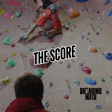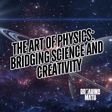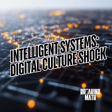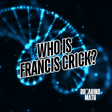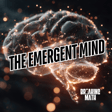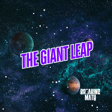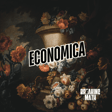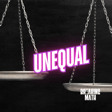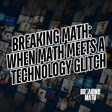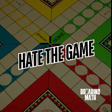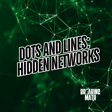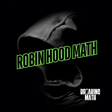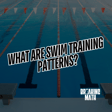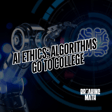Become a Creator today!Start creating today - Share your story with the world!
Start for free
00:00:00
00:00:01

33: Interview with Math with Bad Drawings (Ben Orlin)
An interview with Ben Orlin, author of the book 'Math with Bad Drawings,' as well as the blog of the same name. The blog can be found at www.mathwithbaddrawings.com.
---
This episode is sponsored by
· Anchor: The easiest way to make a podcast. https://anchor.fm/app
Support this podcast: https://anchor.fm/breakingmathpodcast/support
Transcript
Introduction to Special Episode
00:00:06
Speaker
I'm Jonathan. And I'm Gabriel. Today is a special day on the Breaking Math podcast because we are collaborating with another educational creator. We will be interviewing an author about a brand new book that was just released on September 18th called Mathematics with Mad Drawings. This book is by an author named Ben Orlin, who also writes a blog by the same name. Ben has had his writings in several journals, including The Atlantic, Slate, Vox, Los Angeles Times, The Chicago Tribune, and now he's on the illustrious Breaking Math.
Humor and Visuals in Mathematics
00:00:35
Speaker
Ben, how are you doing?
00:00:36
Speaker
I'm doing great, and thank you so much for having me. Excellent. Yeah, we are very glad to have you. Very, very, very exciting. I just got this book, Mathematics with Bad Drawings, and I'm thrilled to say to our audience, not only is there a lot of math in it, of course, but there are tons and tons of drawings, and we don't mean just math, you know, like diagrams and such. There's stick figures and cartoons and comics. It is an absolute delight to read.
00:01:01
Speaker
Now, Ben, would you consider what you draw diagrams or what are they closer to, cartoons or diagrams? Yeah, it's a little bit of both. I mean, I think when I started the blog, so it was about five years ago now, I knew that to do math, it really helps to have visuals. You guys do some inventive stuff with audio, but when I'm teaching, I know that when I have a good visual for something, that's when I can sort of get through to students. And so I knew I wanted to do drawings. I also knew that I can't draw. That is just not a skill that is in my skill set.
00:01:29
Speaker
And so I figured I should disavow it up front by calling the blog math with bad drawings. So, you know, they're going to be drawings and please don't set your expectations too high for them. So I think to answer your question, they're a little bit
Reconnecting Adults with Math
00:01:39
Speaker
of both. I mean, they definitely have, I mean, the ones in the book are definitely there to help explain the ideas and to make it a little more lucid and easy to follow. And there's also a lot of jokes in them, and then they're meant to be silly and playful.
00:01:49
Speaker
It's a question I want to ask you. With this book, now of course it's pretty obvious to me, or at least I think it is, what age group and what target audience is this book for specifically?
00:02:00
Speaker
So I've been really happy with the feedback it's gotten from from, you know, math folks and sort of folks who math teachers and people who are already bought into math. But really, I mean, the audience is most for is for adults who feel a little bit alienated from math or feel like they maybe had, you know, a bad breakup with math at the end of their their educational trajectory and would like a chance to, you know, not to do a full reconciliation necessarily, that's hard to do in one book, but to at least have a nice experience with the subject and get a chance to play around with some ideas.
00:02:28
Speaker
Very good. I saw that you did a very, what I call a good job of approaching statistics, where you start off by talking about the psychology of statistics, how a 1% chance in reality is what most people call a 6% chance.
00:02:43
Speaker
Yeah, no, I think that's about right. Yeah, that I think this is research from Daniel Kahneman's book, thinking fast and slow is where I learned about it. And I think there's this whole, right, the whole realm of kind of behavioral economics and behavioral psychology, cognitive psychology. But so yeah, so basically, what happens is when people hear 99%,
00:03:01
Speaker
They tend to think of that as they kind of round down to like 95%, 90% maybe. When people hear 1%, they kind of round up to 5%, 6%, which I think helps explain why people react as sort of strangely as they do to tiny probabilities like lottery tickets and to almost one probabilities.
Teaching Experiences and Audience
00:03:22
Speaker
When you taught, what was the age range that you taught?
00:03:26
Speaker
Yeah, so I taught for four years in California, and I was teaching high school, so I did a lot of ninth grade when I started, and then mostly 11th and 12th after that.
00:03:34
Speaker
And then I taught for three years in the UK, where middle school and high school is just one big school. And so you're teaching six through 12. Now, here's why I ask, as I was reading this, what I read, I thought my middle schoolers would really, really enjoy. I know that you had mentioned that this is probably for adults who want to improve their relationship with mathematics. But would you also include, I don't know, down to, say, seventh grade or sixth grade, at least for parts of it?
00:03:59
Speaker
Yeah, I think having taught sixth and seventh myself, I think the mathematical content would be accessible at that level. Because I think the fact is that most adults when they go through the world, I mean, the dirty secret of math education is they go through and they're rarely using much from their math education past sixth or seventh, maybe eighth grade at the latest. So I think on a mathematical level, I think it should be accessible to those students. And I don't know as much about kind of the reading level of kids that age. So but I think, you know, a good reader should be able definitely to dig in and it's got pictures. So even if some of the jokes are going over your head, it should still be
00:04:29
Speaker
Yeah, I thoroughly thoroughly enjoyed reading it just the humor throughout it. I would even say that anybody down to sixth grade or I don't want to say fifth grade and you know, overstep it. But there's humor in depth for adults. And there's also accessibility for kids just I'm just saying, you know, like, yeah, no, no, I appreciate that. And so someone on Twitter was telling me that they saw they read a bookstore and they saw a father and a kid who each had a book in hand kid was maybe 10 and the father's grown up in there there, you know,
00:04:58
Speaker
trading back and forth of little things they're finding. I'm hopeful that it can be accessible for a wide range.
Foundational Concepts and Genetics
00:05:04
Speaker
Especially if the parents read the book to their children, then it would be very enjoyable. I do notice that the way that you've written this book, and I'm again using the probability chapter as an example because I thought it was very impressive, was you don't go much above base concepts. If you imagine math as a series of high rises,
00:05:26
Speaker
And, you know, you have to go to the first floor to get to the second floor to get to the third floor. And on the top floor you have weird things like, I don't know, fiber bundles and Noether's theorem. But near the bottom you have a bunch of interesting stuff and a lot of lively activity going on. And I notice that you concentrate a lot on that and you get really deep into it. Like, can you tell us a little bit about... I really like the probability chapter on DNA.
00:05:51
Speaker
Yeah, yeah, yeah, no, yeah, thanks. Now I'm glad that one, that one stuck out to you. Yeah, definitely what you're saying is definitely true, that mathematics is a very cumulative discipline. I mean, you know, everything builds on what came before. I think this is part of why people often have this experience of kind of falling off a cliff at some point with mathematics. It's not so much that they reach a point they can't handle. It's more that they reach a point where the last two or three steps, they kind of missed some pieces along the way.
00:06:16
Speaker
And so the next step just feels like too much and they don't have quite the equipment to take it. So it's definitely true that math, as we experience in school, is very cumulative. And what I wanted to do in the book was try to avoid that by finding ways to keep connecting it back to reality, back to some kind of very tangible experience for people without getting too lost on building castles in the sky. So right, the one you bring up is the chapter on coin flips and as sort of a model for how genetics works.
00:06:46
Speaker
So the chapter is about, um, it starts with the fact that I think you always notice if you're a teacher, when you meet siblings and you meet parents, which is that it's just fascinating to see how people do and don't resemble each other. You know, you'll meet siblings who look like strangers, you'll meet cousins who look like twins, you'll meet two parents and immediately you can see how like, you know, you basically do a face mash in real time and you're like, ah, that is where that kid comes from. That is exactly a combination of those features of each parent.
00:07:13
Speaker
And so just starting from there, you know, that makes me curious about the genetics of inheritance and how, you know, how children inherit traits from their parents. And of course, you know, without going too deep into the biology, it's pretty simple as the wrong word for anything to do with genetics. But there's there's a very simple model that captures a lot of it, which is I've got 46 chromosomes, they come in 23 pairs, and I got from each pair, I got one from my dad and one from my mom.
00:07:40
Speaker
And basically, how did I get those? You know, they each had 23 pairs. And when you have a kid, you flip a coin for each pair of chromosome.
00:07:48
Speaker
And either you pass on the one you got from your mom or you pass on the one you got from your dad. You know, there's, there's complexity obviously to inheritance. There's crossing over where you sort of combine the chromosomes, but that gets you a lot of the way towards understanding how inheritance works. And so you can really just think of it as coin flips. You know, your genome is 46 coin flips. It's 23 coin flips that your dad did and 23 coin flips that your mom did. And so just thinking about how coin flips work, I mean, that's kind of the simplest
00:08:16
Speaker
kind of probabilistic question that we have. And just looking at what happens when you flip coins, you can sort of get a surprising amount of insight about what happens when two people have a kid and when siblings will and won't look like each other.
00:08:29
Speaker
Yeah, we talked a little bit about coin flips on TMI, our episode of information theory, and that's obviously highly related to DNA, and I just thought it was interesting, the attack that you took. Gabriel, what was your favorite chapter that you've read so far? So far, and this is a popular one, this is actually the one that you suggested. I very, very much have enjoyed chapter 10, the one where you talk about some of the mathematics behind the hypothetical design of the Death Star. I thoroughly enjoyed it. Now, full disclosure,
00:08:56
Speaker
Part of that enjoyment was just the absolute hysterical humor that's in that chapter. Ben, I've read books by people who are very, very good at technical descriptions, and I've read books that are very, very entertaining. This is thoroughly, thoroughly entertaining. It reads where you interview Darth Vader, and you interview the imperial physicists who are discussing this design. And it's prosaic.
00:09:22
Speaker
Do you do any any fan fiction or or what what kind of creativity are you in involved in? Let's bond this. Yeah. Yeah, I don't think that the Death Star chapter I'm very proud of is fun to sort of think about the mathematics of what would happen with a spherical space station if you really think about what are what are the implications of that?
00:09:39
Speaker
I don't think it rises to the level of decent fan fiction, because basically what I did is I thought up a bunch of things and then put them in the mouth of, you know, I just said, well, this is something an economist would say. So I said, the imperial economist then says, or this is something an architect would say. And so I said, the imperial architect then says, I'm not particularly well versed in the fan fiction world, but I think that there's a little more world building depth to most of that. Yeah, I've always liked writing, I've always liked making jokes and doing creative stuff.
Creative Process and Influences
00:10:05
Speaker
I do, you know, through my blog, I do a lot of cartoons that are,
00:10:09
Speaker
Yeah, mostly just sort of silly try to avoid doing too many puns, because definitely when the mind is trying to think of jokes, puns are like the just the path of least resistance. But yeah, no, I've always enjoyed doing doing kind of silly creative stuff. And the book was a definitely good outlet for that. I have to ask, just reading the book, are we inspired at all by the I think it's a 1945 or 1955 book How to Lie with Statistics? You know, that's a book that I haven't read. But it's obviously I mean, I know the title I know of the book. It's such a
00:10:39
Speaker
My guess is that I was influenced indirectly because obviously I grew up in a culture that that book helps to inform.
00:10:46
Speaker
Yeah, because How to Lie with Statistics is a time-tested book that, just for our audience who hasn't heard of it, that tells you essentially how people use statistics to warp our version of reality. And it's essentially kind of a math book. It's less math than Ben's book. But it makes me think, honestly, that your book will stand the test of time. It's well-written. From what I could tell, the editor knew what they were doing.
00:11:14
Speaker
Yeah, no, I had a great editor. I was I was really happy with my editor. She's someone who's edited a fair number of science books and pop science books, but hasn't I may think part of why she was excited to take on the project was that, you know, she was kind of curious to see what I would say about math given a given a book to say it. And so she was really great about nudging me towards I think particularly the books, the fact that what you were mentioning about the book being very grounded in reality. I think my editor, Becky co definitely deserves a lot of credit for that. Because my initial outline was a little more, you know, I had some stuff on prime numbers and, and
00:11:43
Speaker
kind of veering off a little bit more towards pure mathematics, which would have been, I think, fun to write about, but probably not quite as accessible and would have run into more problems of being accessible to a wide audience.
00:11:58
Speaker
It sounds like it might be just a challenge for you in the future because here at Breaking Math, but we don't think that anything is beyond the reach of anyone really in some form. Isn't there a Feynman quote about that? Or not only Feynman, but several others have said something along the lines of, if you can't explain something down to the level where people understand it, then you yourself don't really understand it. I mean, I've always said that it takes forever to learn brain surgery, but you could tell me any fact about brain surgery. I'll probably remember it forever. So about your book,
00:12:28
Speaker
Are there any chapters that you found difficult to write, not because they are difficult to explain, but because the concept was, I mean, I guess statistics work with this, but like the concept was so not what people think it is. Yeah, that's a good question. I think in some ways the parts of the book that I sort of labored over the most and reworked the most were probably the opening chapters. So it begins with a section called How to Think Like a Mathematician.
00:12:56
Speaker
And particularly the first chapter sort of uses this variant on tic-tac-toe called ultimate tic-tac-toe as a kind of entry point or a metaphor for how mathematicians think. And it is basically that mathematics is about playing with rules. And when you tweak the rules a little bit, you can get a whole new game.
00:13:16
Speaker
that chapter i think probably i mean it makes sense because the opening chapter that's probably the one that took the most work and i think i remember being i was probably four or five drafts deep into that and had what i thought was a really good draft and i showed it to a friend um who's a really bright guy great editor but not a uh not a mathematician and he said it was a fine piece of writing i enjoyed that you know it had had your jokes in it i liked that uh but at the end i felt like i learned more about tic-tac-toe than i did about mathematics and so i i sort of needed to go back and and figure out a way i'd
00:13:44
Speaker
done only one half of the metaphor i hadn't actually connected it to mathematics itself and so i think the right answer your question the hardest parts of it were not so much addressing any particular mathematical concept but trying to talk about mathematics
Challenges in Math Education
00:13:58
Speaker
in general mathematics as a discipline because it's such a diverse and sprawling discipline like any discipline that it's hard to generalize about without slipping into um
00:14:08
Speaker
into falsehoods. And so those early chapters where I'm trying to talk about mathematics in general probably took the most finessing. That's interesting. It's nice how you paid that much attention to it. I think one of the constants in mathematical research is a quote that I heard. Mathematics is like trying to get to the store and then ending up at your grandma's house and then ending up on the moon and then finally getting to the store. Yeah, that rings true to me.
00:14:36
Speaker
So this is one of my favorite questions that I like to ask anybody who is passionate about mathematics or science in general. Who are your favorite authors in the subject area? That's a good question.
00:14:50
Speaker
So popular writers about mathematics, there's a lot that I think do great work. I really like, I'm almost hesitant to see who I list first. Anyway, on my desk right now, I've got Hannah Fry's book about algorithms that I just finished, which I thought was a really nice book. Paul Lockhart, who wrote this wonderful essay called
00:15:09
Speaker
as it's known as Lockhart's Lament, but basically it's sort of a polemic against the state of mathematics education as it is, which I found really influential. I think when I first read it, I was 22 or 23, I sort of just started teaching. And then he has a really nice book called Measurement, which sort of lays out a lot of problems. Steven Strogatz's book, Joy of X is really wonderful. Jordan Ellenberg's book, How Not to Be Wrong is really excellent. Simon Singh is writing about mathematics. He has a book about Fermat's Last Theorem that's really great.
00:15:39
Speaker
Siobhan Roberts has written two really wonderful biographies of mathematicians. Those are yeah, I mean, there's a almost anytime I pick up a, you know, the kind of book that shows up on the on the math shelf of the bookstore, I find something Yeah, there's almost always something in that volume that I'm gonna enjoy. Now, who else? I'm just kidding. Yeah, there's a few that I think will add to that. Jonathan, may I ask you, what is your all time favorite book? Oh, I don't. I mean, okay, actually, I kind of have one.
00:16:08
Speaker
I mean, how do you feel about Godel Escher Bach as a science writer? Have you read it yet? Yeah, I so I haven't read that book. I'm about like a third of the way through a collection of essays from Hofstadter. And it's wonderful writing. He's a really, he's a really flavorful, interesting, opinionated, brilliant writer. Have you read a person paper on purity and language? Oh, yes, I have. Yeah, his right his parody of
00:16:33
Speaker
Sapphire right is the is the name of the writer who is right. It's um reflecting on gendered language basically, but through a really uh Yeah, it swaps gender and race
00:16:44
Speaker
Yeah, there's a there's a few other ones and then and actually I was delighted to see that on on your blog you listed a lot of the stuff that we read including comics like xkcd saturday morning breakfast cereal I think that's what it's called and then there was those one that we were just introduced to it's the what is it the star codex i'm saying it wrong
00:17:06
Speaker
Slate Star Codex. I'm bad at remembering names. Slate Star Codex. That's a phenomenal blog. Oh my goodness. There's one more that I wanted to mention. We've delved in recently. Are you familiar with the fan fiction Harry Potter and the methods of rationality?
00:17:20
Speaker
It's been on my to read list for ages. Yeah, I know I am familiar with it. I've heard really great things about it. Oh, it's phenomenal. It's phenomenal. As I'm reading it, he quotes so many people. He talks about Richard Feynman. He talks about mathematicians. He talks about concepts and things like hedge fund managing. It's oh, it's the author is just out of this world.
00:17:44
Speaker
We know that you spent some time as a teacher. We've got a few questions about education here. This was sent in by a coworker of mine who read the entire book. Her name is Kat. She's awesome. She writes, how do you respond when people say, Oh, well, you're just good with numbers. So of course math makes sense to you.
00:18:03
Speaker
Yeah, I think one assumption that's contained in there, which I think is very common among people who feel sort of slightly math averse, is that mathematics is all about numbers. I think knowing some people who are professional mathematicians and being a math teacher and knowing lots of other math teachers
00:18:18
Speaker
Many mathematicians like to disavow that idea that mathematicians are good at numbers. A lot of mathematicians I know sort of boast about how bad they are at arithmetic. I think it's a way of reorienting people's focus on, you know, mathematics is not arithmetic. It's not purely computation. It's about logic and it's about argument and it's about conceptualizing things and creating models of reality. And so
00:18:39
Speaker
Yeah, that tends to be my answer when people assume that mathematics is all about arithmetic. That's one interesting and exciting part of mathematics, but there's a lot more to it. What do you think the process of learning math does to a brain just in general? How does it infect the other ways of thinking?
00:19:01
Speaker
Yeah, that's a really good question. I think it depends what kind of mathematics, but I think to me one of the coolest possibilities of what math education can do is that it can be a really crisp and transformative education and logic.
00:19:17
Speaker
So this is, for example, Abraham Lincoln. You see it in the movie Lincoln, where he suddenly at one or two points, he kind of rattles off some Euclid quotes, which is totally true to history because Lincoln loves Euclid. In fact, like in the middle of his legal studies, he kept coming across references to Euclid as just the model of how logic works, that somehow the arguments that Euclid laid out in his geometry book were the purest and the most certain sort of arguments that one could give.
00:19:41
Speaker
And so he actually kind of abandoned his legal studies and went back and for like six weeks just read math, read Euclid, and learned about geometric proof. And obviously Lincoln is someone, I mean, he became a lawyer, he became the best president we've had, you know, he was someone for whom argument was really central to what he did and what he contributed to the country. So to me, that's a pretty good, if you're gonna argue from anecdote, that's an anecdote I like to argue from, because I think Lincoln understood that mathematics education could teach logic in a really profound way.
00:20:11
Speaker
There is a subject that a lot of people think is really hard that obviously we call it geometry, and we have the best textbook that almost anybody's ever written for geometry. We've had it for 3,000 years, the elements. Why is that not used, in your opinion? The geometry textbooks we have, I think, tend to draw from Euclid. They sort of rearrange the assumptions a little bit and fuss with a little bit.
00:20:40
Speaker
That's a good question of why is geometry still so hard to teach. I guess what it comes down to maybe is that having a great textbook doesn't constitute a great education. There are auto-dyed acts out there. There are people who can learn from a book. But for most people, it takes a more interactive experience. You need someone
00:20:58
Speaker
talking to you one-on-one, seeing the work you're doing, responding to it, kind of leading you on the journey that is a learning experience or that is a class. And so the fact that Euclid wrote down this really definitive text 3,000 years ago, 2,500 years ago, is a great resource but doesn't constitute an education.
00:21:15
Speaker
No, but I've looked at some geometry textbooks and my mother used to be a science teacher and a math teacher and they don't seem like they cater much better to an educational experience. I don't see what they do.
00:21:30
Speaker
Yeah, no, that's fair. I think the way the way I tend to think about curriculum is that it's not designed so much as it forms through natural processes. So, you know, what goes into a curriculum? Well, there are the pressures of, you know, there's probably some kind of design vision in an actual subject matter expert who was writing it. There's also going to be political officials, you know, whether they're state, you know, education board people or, um,
00:21:58
Speaker
superintendents or whoever who are applying some kind of political pressure on the curriculum writer and, you know, not to say political pressure is a bad thing. It's the, you know, sometimes speaking with kind of the voice of parents collectively, or the voice of businesses, or the voice of citizens who have some kind of interest in it.
00:22:18
Speaker
Anyway, this is sort of a garbled explanation. The way I think about curriculum is that a lot of different forces combine to shape it. And so looking for the single design behind curriculum often doesn't...
Math in Science Fiction and Education
00:22:30
Speaker
It's very unsatisfying because we don't wind up finding a single design. What we want to finding is that, well, this topic got included for that reason and this topic got included for that reason. And the assessment takes this form because that person wanted the assessment to form this way. I think curriculum in school tend to satisfy no one.
00:22:48
Speaker
And so it's not necessarily a simple matter of if one good designer could just come in and fix the math curriculum because the math curriculum is serving a lot of different roles for society and then faces a lot of different pressures. Which are the best pressures? Just kidding. The pressures I'm applying. We're going to ask you to rank everything on a linear scale.
00:23:07
Speaker
Yeah. That's good. One variable always comes in. Yeah. Another question about education. I think you sort of touched on this a little bit, but what do you find it to be the single most frustrating thing about teaching math? Definitely the most frustrating experiences when you're teaching math is very simply when you're trying to teach something and the students are not managing to learn it. That's frustrating for the teacher because you
00:23:33
Speaker
start to doubt yourself and the instruction that you're giving, and you start to want to blame the students. And it starts for the students because they start to doubt themselves and their ability to learn it, and they want to blame the teacher. And it's really easy to get caught in this kind of dysfunctional cycle. There's actually a blog of yours that I retweeted yesterday that I read, and I think it was one of your most popular ones. It's called What It's Like to... Oh, I'm going to say it wrong. What It's Like to Not Be Very Good at Math.
00:23:59
Speaker
Yeah, what it's like to be mad at math. Yeah, that's one of your most popular blogs, isn't it? Yeah, yeah. Yeah, that was really early on in the blog. That was maybe the fifth or sixth post or something. So it was the first month that I've been doing the blog. And it's like to sort of put something out on the internet. You put it out there and it's not necessarily going to be a lot of feedback. And that one really took off. I think that resonated with people because I sort of dug through my experience
00:24:23
Speaker
And it was hard to write. I mean, I wrote, you know, when I sat down to write, I sort of wrote 500 words probably of like hedges and caveats that I had to delete later explaining why I wasn't. This wasn't really a failure and there were good circumstances as to why I struggled in this class. But then when I finally was able to force myself to write, it was a piece about how I took this topology class and didn't get it. I really didn't, I wasn't able to grasp what
00:24:47
Speaker
the class was about. And, you know, I had to give this oral presentation that I was really ill prepared for, and sort of had to go groveling to the professor the day before to just ask for help and mercy. And it was even, you know, a few years later, writing about that, it was really surprisingly hard to bring myself to just, it was like looking at the sun to just look right at that experience and what had I felt and why had I done what I did? Why had I reacted the way I reacted?
00:25:14
Speaker
Cause it really, it really stings when you're not getting something in mathematics. That's a really painful experience. Oh, absolutely. Yeah. And so I think, I think that's something that, you know, being able to write that down and then throw some jokes in there. I think that, that resonated with people. Cause almost anyone who's, if you spend long enough in a math classroom, spend long enough in math education, you're going to have that experience at some point or another. We could do an entire podcast or a series of podcasts on math frustrations, I think. And it would relate very well, you know,
00:25:41
Speaker
Oh yeah. I don't know if I should say that's a future episode. I feel like making an episode about mouth frustration itself may be frustrating. Maybe so. I think I might, just as a little palate cleanser, we'll go down here to one of the, what are your favorites? What are your favorite sci-fi stories? And that can be novels or comics or movies or shows. And why? That's a tough question. So I think probably
00:26:11
Speaker
When it comes to TV shows, I still don't think there's a better science fiction show for me and in my heart than Star Trek The Next Generation. I enjoy Deep Space Nine. I admire Deep Space Nine. It's got a lot of good things to it. Battlestar Galactica is a glorious show, I think. I'm one of the few people who will defend the finale. But Star Trek The Next Generation, particularly once it gets going and once you get these episodes with Patrick Stewart, just getting it like the heart of what it is to be human,
00:26:38
Speaker
You know, moments when he's, there's the episode, I mean, probably one of the best episodes of television that there's been is the episode where a probe comes in and kind of zaps the captain. And suddenly he's in the life of this man on an alien planet.
00:26:51
Speaker
And over the course of the episode, he lives like 30 years on this alien planet. The episode's called The Inner Light and experiences this whole life as this man with a different name on a different planet. And then at the end of the episode, he zaps back into his own body and has to then live the rest of the series with the memories of this life that he lived at in his lost civilization. That is a kind of story that you really can't tell in any other
00:27:19
Speaker
in any other genre than science fiction and fantasy. And there's something that's able to say about what life is and what human experience is that more conventional fiction just can't go into that kind of territory.
00:27:36
Speaker
I was going to say, it's pretty clear to me where Rick and Morty draws a lot of their plots and their subplots from. There's an episode all about that, but I think in this case, it's a video game. Oh, yeah. I'd forgotten about that. There is a moment in Rick and Morty. Yeah, where he plays a guy who ends up- Wait, what's his name though? The guy, it's the name of the video game.
00:27:58
Speaker
Yeah, it's um gosh, we should we google it real quick. Yeah. Yeah, there's yeah, there's there's a moment Rick and Morty is it I mean takes I would imagine a virtually infinite number of influences and then condenses the chops them up and that's oh absolutely so Jonathan's gonna actually look the name of that one out but yeah, I think in that episode he's you know, of course born as a baby and lives out as a man who ends up working at a carpet store and Yeah
00:28:24
Speaker
And then I think he battles cancer and survives and then he goes back to the carpet store or something and then he ends up dying as an old boy. It's called Roy. Yeah, it's Roy. That's right. And this all unfolds in like a minute and a half of screen time in the Rick and Morty episode.
00:28:40
Speaker
Yeah. Do you think that there is, I mean, I guess I know of a fiction that satisfies this criteria. It's the one that Gabriel's been bringing up, Harry Potter and the methods of rationality. And I guess some of Ozimov's stories will fit this category too, but not just science fiction, but MathFi.
00:28:59
Speaker
Yeah, I mean, I just read the first two foundation books earlier this year. And I think right to the right, math fiction is something I've thought a lot about. There's a nice, yeah, there's a nice website out there, just Google math fiction, someone's put together a really lovely database of all sorts of math fiction stories. I think Foundation by Asimov is probably one of the best examples. In right in foundation, it's set in this kind of
00:29:25
Speaker
few millennia in the future, I don't know, 12,000 years in the future or something, the whole galaxy is populated by humans, it's this enormous population, this galactic empire, and it's about to fall. It's sort of patterned on the fall of Rome. And this one brilliant mathematician named Harry Seldin, through brilliant and slightly vague mathematics, is able to foresee the fall of this civilization.
00:29:48
Speaker
and make just a little nudge, sort of put a few pieces into play that he thinks won't be able to prevent the fall of the civilization, but will be able to shorten the dark age that follows. So instead of being a 30 millennium age of darkness where the galaxy is in turmoil, he thinks he'll be able to shorten it down to a single millennium.
00:30:08
Speaker
It's much more a kind of civilizational adventure story than it is a story about mathematics, but at the heart of it is this idea that this one mathematical figure has somehow predicted millennia of galactic future using probability, basically.
00:30:22
Speaker
Wow, okay. Gosh, there's plenty of more questions that I could easily grab any one of them. You know what? I thought I'd ask you, Ben, is there anything that you in particular would like to talk about, whether it is about your book or math in general or anything else?
00:30:40
Speaker
No, you know, nothing leaps to mind. I mean, I, it's funny, I, when people ask me what I do right now, right, right at the moment, we are working on this book, and I've got a second book I'll be working on, that'll come out in about a year. And then, right doing, doing interviews like this for this book, which are really fun, this has sort of become my full time thing. But teaching has been the bulk of my career, and I still think of myself very much as a teacher. And so, right, I know you guys both have had experience in math education, too. But
00:31:09
Speaker
Basically, I like to take every chance I get to just put in a good word for math education as a profession. I think particularly for people who are interested in technical fields, interested in mathematics, but also enjoy having a highly social work life to be around people all day. Math education is really pretty cool for that. And the world needs math teachers. We'll always need math teachers. Absolutely. Absolutely.
00:31:38
Speaker
Now, how do you think that math is universal or is not universal? And is it a language for the physical world or is it a language for something deeper or is the idea of something deeper than the physical world itself ingest because it depends on the physical world to exist?
00:32:00
Speaker
Yeah, I think it's funny. My understanding is if you talk to philosophers, you don't tend to find a lot of Platonists, right? This idea that there's this magical non-physical world of kind of pure objects, you know, pure geometric objects like triangles and things.
00:32:18
Speaker
Right, when it comes to Platonism, I don't think, from what I understand, most philosophers these days are not particularly Platonists. So, right, Platonism is kind of the idea, right, this idea of you've got forms that, you know, when you look at a chair, and I look at a chair, I don't know, right now in the room I'm in, there are two chairs, and they're like pretty different. One of them is wooden, one of them is like IKEA.
00:32:40
Speaker
And, but somehow they're both chairs, right? They both have some essence of chairness to them. So you can sit on them and they've got support below. And so Plato imagines that somehow there's a form of the chair, like the essence of chairness and that there's this world. It's not our world. It's not the physical world. It's some other imaginary mind world where the forms all live. It was a cool idea when Plato thought of it. It doesn't seem to be something philosophers find very compelling today.
00:33:08
Speaker
But if you talk to mathematicians, mathematicians seem much, much more inclined towards that because it just feels true about triangles. Like, you know, I draw a triangle. It's not a perfect triangle. It's like a little wobbly. The corners aren't quite sharp and perfect. You know, you draw a triangle, same thing happens. We all draw different triangles. None of them quite feels like a perfect triangle. But we have this notion of a perfect triangle. It seems easy to imagine that
00:33:33
Speaker
It just feels like there's some kind of abstract idea that all of our broken earthly triangles are pointing at or gesturing at. So I think once you've had some experience with mathematics, it's really hard to resist that idea that there is some kind of deeper reality to logic, something that goes beyond the physical world.
00:33:52
Speaker
I just want to point out that you use chairs as an example, which we've done on Breaking Math, I think three or four times. I think we used it for entropy. We keep using chairs. The Big Bang Theory shares did come up on that episode. What episode? We were talking about how in the Big Bang Theory, when the singularity explodes, it's strange because it should be a uniform distribution of things that you still had an
00:34:13
Speaker
Oh yeah, like chairs. Jonathan has these amazing leaps of logic. He's a brilliant person, but his leaps of logics are four or five steps ahead of ours. So he was talking about why it's a mystery with the Big Bang how we have things like chairs. And we just thought, I'm sorry, I'm not following. So yeah, it was great conversation. That's not my best moment on the show. I like that the leaps of logic always bring it back to chairs too. Yeah, yeah. OK.
00:34:38
Speaker
So a few questions here. These are some that were submitted by Kat,
Mathematics: Practical and Beautiful
00:34:42
Speaker
actually. She says, now she has her degree in a field in biology. I believe it's biophysics. And she says, biology has a central dogma, does math.
00:34:52
Speaker
Yeah, it's a good question. I think in short, no, math doesn't have a central dogma. I think if I had to name one, I mean, one that's comparable to the central dogma of biology, you know, the idea that, I mean, the central dogma is essentially the process of gene expression and inheritance, right? That's central dogma of biology. So, I mean, the closest analogy I could think of in math, it's kind of a fun, it's a fun parlor game to play. Like, what would you call the central dogma? To me, I think the Cartesian plane and the idea of
00:35:20
Speaker
more generally, that geometric objects can be expressed algebraically, and that algebraic relationships can be visualized geometrically. You know, the fact that you talk about the line y equals x, right? y equals x is not a line, it's just saying two variables, x and y, are the same thing. They could be both 5, they could be both 10. And then you draw it on a coordinate plane, and suddenly becomes this straight line passing through the origin with a slope of 1.
00:35:46
Speaker
And so the idea that there's a correspondence between the world of algebra and the world of geometry, you know, that doesn't get you all of mathematics, but there's an awful lot of mathematics that's only one or two steps removed from that basic insight.
00:36:03
Speaker
So of course you care about math enough to write a book about it. You care enough about math to study it. Now, I guess the question is, and we do the same thing kind of, why do any of this? I don't mean that in the absolute sense, like why bother with life? I mean, why should mathematics be part of our world? What does it do to take the question I would like?
00:36:31
Speaker
You know, when I hear other people answer that question or try to give the case for why math, I think you get two basic kinds of answers. And one answer is that math is super practical. You know, that math is how spreadsheets work and it's how markets work and it's how spaceships work. And so if you want to get things done in the world, you need math for all these practical reasons.
00:36:48
Speaker
And then the other answer you get is that math is beautiful and math is patterns and it's logic and it's full of these lovely visuals that don't necessarily have to mean anything, they're just sort of expressions of the human intellect and the human spirit. What I find interesting, my answer to the question, is that if you notice those two answers seem, if not opposites, then at least somewhat opposed, right?
00:37:11
Speaker
If math is a practical matter, then why would we expect it to be beautiful? And if math is about chasing beautiful ideas and following our curiosity, then there's no reason to expect it to be particularly practical. And yet it's both simultaneously all the time. There are all these weird cases where searching for the practical solution to some problem turns out some absolutely beautiful mathematics, or vice versa. Searching for beautiful mathematics produces something of real practicality. You know, non-ecluding geometry is probably my favorite example.
00:37:41
Speaker
this idea that you can come up with these imaginary geometries that don't seem to work the way regular geometry works. And those just sat there in mathematicians' minds for a few centuries, 150 years, 100 years, 150 years, and then suddenly Einstein came along and was able to demonstrate those
00:37:58
Speaker
those sort of weird imaginary geometries are actually the geometry of our physical reality. So to me, I mean, what's the case for mathematics? It's not just the practicality or the beauty, but the very weird way that math manages to be both simultaneously.
Conclusion and Promotions
00:38:13
Speaker
Yeah, I'm always reminded that you mentioned that of food. Food is absolutely necessary to sustain life, but also we, you know, you have like five course restaurants.
00:38:24
Speaker
Right, yeah, right. I look at my friends' pictures of stuff they're cooking on Instagram and like, yeah, that looks like it would practically fulfill my hunger and it is also just a beautiful thing to admire. So math is food is what we're coming to the conclusion about. Math is food. Yeah, I think that's right. Yeah, nutritious and lovely. So if people wanted a bite of your book because that was a clever thing to say, where can they do that?
00:38:44
Speaker
Yeah. I mean, it should be available pretty much anywhere you like to buy books. So if you want to get it online, the big retailer you want to go to Amazon, it's definitely available on Amazon. Barnes and Noble should have copies. Other bookstores should have copies too. If you've got a favorite bookstore, go there. And if they don't have it, you can definitely request it and they'll get it for you. Wonderful. Well, is there anything you'd like to say signing off? No, just thanks so much for the interview. It's really good talking to you guys. I'm Jonathan. And I'm Gabriel. And this has been Breaking Math.
00:39:22
Speaker
So that was Ben with his new book, Math with Bad Drawings. And if you want to spend even more money on math related things, what can they get from our Patreon? We have for our Patreons for a one-time donation of $35 for our USA audience a poster on tensors, which is the mathematics used in Einstein's general relativity. Yeah. I mean, some of the mathematics definitely, but we also
00:39:48
Speaker
are selling this internationally, but we're going to have to collect shipping and just go to patreon.com slash breakingmath to do that. If you want Gabriel to get a tattoo, you can email us at breakingmathpodcast at gmail.com and you can see our Facebook at facebook.com slash breakingmathpodcast. That was the deal. What was it? What was it? 100 emails? 100 emails in two months and we are wrapping up. It'll be two months here. Pretty well, it's the end of September than the end of October. So
00:40:13
Speaker
Yeah. So start emailing. Yeah. And I think a tattoo is going to be, it's going to be the information paradox equation and, and a cool symbol that goes with it. So we're going to do it and we're going to live, uh, I don't know if we'll live stream it, but we will take pictures and tweet them out. So we'll be sufficiently media saturated. Okay. Very good. Bye.

